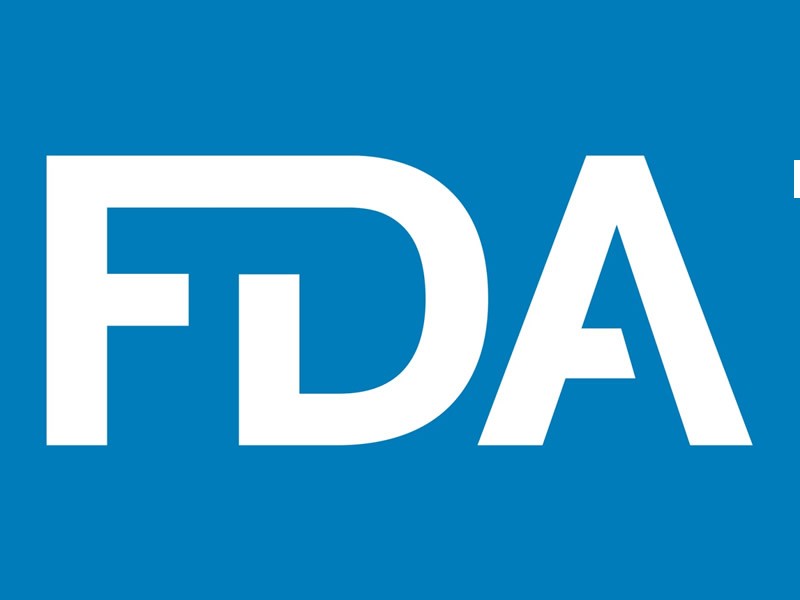Insight Blog
Agility’s perspectives on transforming the employee's experience throughout remote transformation using connected enterprise tools.
7 minutes reading time
(1407 words)
Park Doctrine FDA – The Responsible Corporate Officer Doctrine
The definition of Park Doctrine is an official statement of policy about how two countries interact.
Strict liability for criminal conduct is imposed on corporate officers under the responsible corporate officer doctrine, regardless of whether they were aware of or took part in the unlawful action. In order to learn more about the ideology of the responsible corporate officer, anyone working in a field that has an impact on public health and safety should keep reading.
U.S. vs. Dotterweich, handed down by the Supreme Court more than 70 years ago, declared corporate officers in industries that adversely affect public health legally responsible for a misdemeanor violation of the Federal Food, Drug, and Cosmetic Act. Because of his position, he could have prevented or corrected the actions of the firm that sent adulterated or mislabeled pharmaceuticals into interstate commerce.
In the U.S. vs. Parks, decided 32 years later, the Supreme Court reaffirmed the notion of the accountable corporate officer. It didn't matter whether corporate officers were actively involved in the activity that resulted in the infringement or not; the court decided that the Food, Drug, and Cosmetic Act sanctions "neglect where the law requires care or inaction where it imposes a responsibility." People who fail to exercise their power or supervisory obligation to prevent or correct a breach of law that directly impacts public safety are held to "the greatest standard of foresight and vigilance" by this strict liability application of the criminal law.
So what if a case was determined a long time ago? It is because Congress has consistently condemned the Department of Justice for neglecting to prosecute individuals who have violated the Food, Drug, and Cosmetic Act over the past few years. Responding to this concern, the Justice Department has implemented a policy of prosecuting and convicting corporate officers regardless of their involvement in actions that violate the federal Food, Drug, and Cosmetic Act.
What is Park Doctrine?
Responsible Corporate Officers (RCOs) can be prosecuted for corporate misconduct when they are in "a position of authority" but fail to prevent or correct an offense under the Food, Drug & Cosmetic Act. This is known as the Park doctrine. However, the Department of Justice rarely employs this vicarious responsibility charge against supervisory personnel because it is both strict liability and also a vicarious liability violation. Despite this, the Supreme Court is considering an important Park doctrine case, United States vs. DeCoster, which might provide long-awaited direction for executives in the food and medicine industries.
To put it another way, DeCoster is notable because the firm's owner and chief operating officer argue that their egg distribution company sold salmonella-infected eggs and should not be sent to prison. While arguing that the Eighth Circuit ruling upholding both executives' convictions and sentences of three months in jail is an overreach of that court's RCO concept, the DeCosters contend that an innocent supervisor convicted of vicarious criminal culpability should not be imprisoned.
👉 Learn more: Download our ebook: Tracking Change Management
Responsible Corporate Officer Doctrine
There are two factors that are needed to be proven in order to apply the doctrine of the "Responsible Corporate Officer": (1) a corporate officer's authority to "prevent [the complaint] or swiftly make appropriate corrections in it" and (2) their failure to do so. Even without awareness, the officer's power is sufficient. The prosecutor's prima facie case can allegedly be proven off just a business card.
Another anomaly is that the Park theory is built in negligence principles; an officer may be accountable for not acting if he had a duty to act. However, the Park and Dotterweich Courts notably neglected to seek proof of the key ingredient of negligence: causation. Using language like "the highest standard of foresight and vigilance," "power" and "authority" to describe the accountable corporate official, the Park Court was convinced that the jury was mindful of the defendant's "authority with relation to" the unclean conditions that caused the FDCA breach.
The Park Court did, however, open the way to a possible safe haven: The defendant may have a defense if he or she was "powerless to avoid or correct the violation." However, given the executive's inherent duties, proving this affirmative defense is a difficult task.
As a result of its roots in strict and vicarious liability, the Doctrine of the Responsible Corporate Officer is unique. Consequently, courts can hold executives accountable in addition to accusations against their firm, and punishments can include jail, fines, and exclusion from the organization.
Importance of Park Doctrine FDA
It has been a decade now, FDA and the Justice Department have declared their intention to prosecute business managers under the Park Doctrine, even though FDA did not commonly propose criminal prosecutions after a landmark case in 1975. Specifically, FDA declared its goal to increase the use of misdemeanor prosecutions to hold culpable business officials accountable. FDA later issued a set of non-exclusive, non-binding criteria that might be utilized by the agency to assess what items it would propose for misdemeanor prosecution under the Park Doctrine. The Department of Justice's Deputy Attorney General at the time wrote a memo in 2015 similarly declaring that the Department of Justice intended to seek accountability from people involved in corporate malfeasance. Since the Hamburg letter and the Yates memo, the FDA has referred to the Park Doctrine in multiple warning letters.
What is the Responsible Corporate Officer Doctrine?
When it comes to criminal defendants, they picture someone who has broken the law on purpose. Many people are unaware, however, that corporate officers can face individual criminal charges if they were aware of, or should have been aware of, criminal activities in the firm.
It is possible for individual corporate officers can be found guilty of violating federal laws without displaying any unlawful intent, negligence, knowledge of the violation, or direct participation in the wrongdoing under the responsible corporate officer (RCO) doctrine. On the other hand, the government just needs to show that the executive did these three things: held a position of responsibility and power in the organization, had the ability to prevent the problem, and failed to prevent the breach under the RCO doctrine.
Park Doctrine Guidance
It's safe to say that RCO responsibility is a useful tool in the area of public welfare. However, because RCO liability is subject to no genuine ex-ante or ex-post check, the FDA and Department of Justice should exercise greater self-restraint when implementing FDCA Section 333(a)(1) (1). It is imperative that the FDA and Department of Justice implemented the RCO concept consistently as a means of more clearly adhering to the rule of law. This is true for the incarcerative sentences upheld in DeCoster and when the political branches revive debate regarding reforms and the value of individual accountability for corporate malfeasance.
The Fraud Section expects management to set the standard for best practices. Accordingly, top executives and business divisions responsible for best practices should commit equally to developing and maintaining an atmosphere that supports good conduct. Also of note in this updated departmental advice is a focus on ensuring that an organization's compliance program can keep track of senior management behavior and implement measures to prevent wrongdoing.
An effective compliance program relies on the compliance department's ability to independently examine allegations of wrongdoing. There must be regular meetings with management to discuss performance in the compliance department, which must be self-sufficient in monitoring employee behavior. There is no doubt that a corporation should give the resources required to keep tabs on its employees' conduct.
Conclusion
Strict liability for criminal conduct is imposed on corporate officers under the responsible corporate officer doctrine, regardless of whether they were aware of or took part in the unlawful action. In order to learn more about the ideology of the responsible corporate officer, anyone working in a field that has an impact on public health and safety should keep reading.
U.S. vs. Dotterweich, handed down by the Supreme Court more than 70 years ago, declared corporate officers in industries that adversely affect public health legally responsible for a misdemeanor violation of the Federal Food, Drug, and Cosmetic Act. The defendant, in that instance, was not the individual responsible for delivering contaminated or misbranded pharmaceuticals into interstate commerce; however, he was in a position to prevent or remedy the action of the business.
Categories
Blog
(2741)
Business Management
(337)
Employee Engagement
(214)
Digital Transformation
(185)
Growth
(124)
Intranets
(122)
Remote Work
(61)
Sales
(48)
Collaboration
(44)
Culture
(29)
Project management
(29)
Customer Experience
(26)
Knowledge Management
(22)
Leadership
(20)
Comparisons
(8)
News
(1)
Ready to learn more? 👍
One platform to optimize, manage and track all of your teams. Your new digital workplace is a click away. 🚀
Free for 14 days, no credit card required.

















